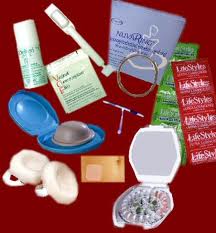 A recent study found that the majority of women in the U.S. overestimate condom and oral contraceptives’ effectiveness. Some even think the methods are 100% effective. Two doctors in St. Louis using a questionnaire of contraceptive knowledge conducted a cross-sectional analysis. The form was completed by over 4,100 women. Before the women received contraceptive counseling, they had formed a part of the Contraceptive CHOICE Project.
A recent study found that the majority of women in the U.S. overestimate condom and oral contraceptives’ effectiveness. Some even think the methods are 100% effective. Two doctors in St. Louis using a questionnaire of contraceptive knowledge conducted a cross-sectional analysis. The form was completed by over 4,100 women. Before the women received contraceptive counseling, they had formed a part of the Contraceptive CHOICE Project.
The study found that 86% of the participants knew the risk on an annual basis of pregnancy was over 10% if no contraceptives were used, but over 45% of the same participants overestimated the effectiveness of the injectable contraceptive, patch, ring, pill and condoms.
After adjusting for education, age and history of contraceptives, the data indicated that women who used an intrauterine device, the most effective of all methods of birth control, were substantially more apt to correctly name the effectiveness of their method compared to those women who used the patch, ring or pill.
Fewer than 1 in 100 will get pregnant each year if they use the pill every day as it is prescribed. However, nine of 100 females will get pregnant each year if they the pill is not used as prescribed by their physician.
Condoms used by men are only 82% to 98% effective in preventing a woman from getting pregnant, that big discrepancy is due to inconsistent, incorrect use or failure to use the condom, said the Centers for Disease Control in the U.S.
